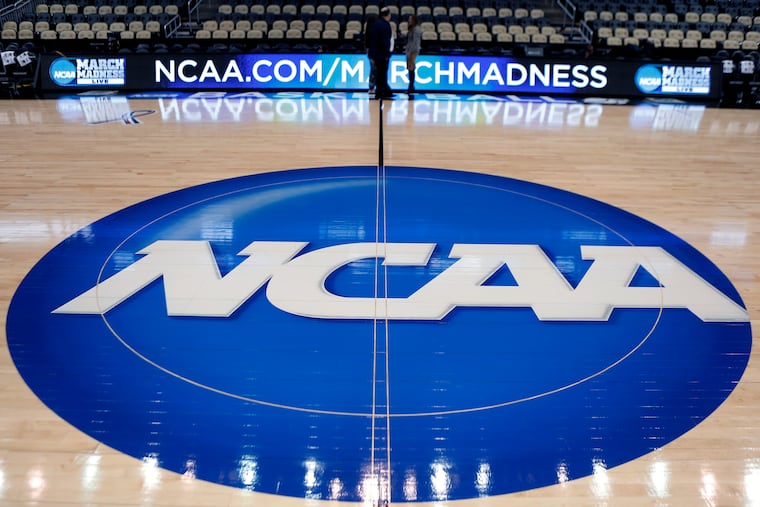NCAA pushing ahead with legislation opening up endorsement deals for college athletes
The NCAA Board of Governors announced Wednesday it had "supported" rule changes to allow student-athletes to receive compensation for third-party endorsements both related to and separate from athletics.

The NCAA Board of Governors announced Wednesday it had “supported” rule changes to allow student-athletes to receive compensation for third-party endorsements, “both related to and separate from athletics.”
That’s not the final step of the process. NCAA presidents still have to approve this seismic rule change, but that is expected in January, given the support of the NCAA leadership.
In a statement Wednesday, the NCAA Board of Governors also said it “supports compensation for other student-athlete opportunities, such as social media, businesses they have started and personal appearances within the guiding principles originally outlined by the board last October."
The NCAA noted that while student-athletes would be permitted to identify themselves by sport and school, “the use of conference and school logos, trademarks or other involvement would not be allowed.”
Another big point: “The board emphasized that at no point should a university or college pay student-athletes for name, image and likeness activities.”
In a Wednesday press conference, Big East commissioner Val Ackerman, part of the working group on this issue, noted booster involvement in recruiting is the “source of the most concern about how to make it workable in our system.”
The NCAA used the term “guardrails” rather than monetary limits, in terms of what activities would be fair game. “No name, image and likeness activities that would be considered pay for play; no school or conference involvement; no use of name, image and likeness for recruiting by schools or boosters; and the regulation of agents and advisers.”
Still, could a future Kris Jenkins go to an autograph show after hitting a shot to win the NCAA title game? Apparently, yes. Could a future Jenkins get a car dealership deal? Maybe, but that would be looked at closer, to make sure there is fair market value and boosters didn’t arrange the deal as part of recruiting.
Could a future Jenkins get his own sneaker deal? That’s still to be ironed out.
The rules changes came after the NCAA lost the Ed O’Bannon case over name, likeness, and image in court, and after states began threatening legislation mandating this kind of change.
“The NCAA’s work to modernize name, image and likeness continues, and we plan to make these important changes on the original timeline, no later than January 2021,” said working group co-chair Gene Smith, Ohio State senior vice president and athletics director.
The NCAA said it would “engage Congress” to take steps that include ensuring federal preemption over state name, image and likeness laws, “establishing a ‘safe harbor’ for the Association to provide protection against lawsuits filed for name, image and likeness rules," and maybe most interesting, “safeguarding the nonemployment status of student-athletes.”